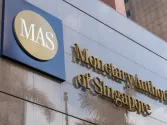
Weekly Global News Wrap Up: Mobile money takes over Africa; US regulators mull changes to Volcker Rule
And Nordic banks hit by negative rates may pass on the burden to customers.
From Bloomberg:
Sub-Saharan Africa has more mobile-money accounts than anywhere else in the world with about 396 million registered users at the end of 2018, up 14% from a year earlier, according to the GSM Association. As it catches on around the world, South Asia saw 29% growth in 2018, and it was 38% for East Asia and the Pacific.
The number of registered users in Ghana soared 11-fold between 2013 and 2017, International Monetary Fund data shows. Across the continent in Kenya, where it was pioneered, the value of such transactions amounts to almost half of gross domestic product, according to the World Bank.
Banks don’t lose out because the mobile-phone companies park deposits with them, giving them cheaper access to funding.
Read more here.
From Bloomberg:
Wall Street watchdogs are poised to take a major step toward overhauling Volcker Rule limits on banks’ ability to trade with their own funds, according to four people familiar with the effort.
Regulators responsible for the Dodd-Frank Act rule are set to approve revisions next week. The changes will loosen restrictions on banks investing their own money in private equity and hedge funds, according to the people, who requested anonymity because the process isn’t public.
Read more here.
From Bloomberg:
Ever since negative interest rates became a thing, banks have been too afraid to pass them on to retail depositors. although that may be about to change.
UBS Group AG recently decided to charge wealthy clients on deposits that exceed 500,000 euros ($560,000), in addition to introducing negative rates for clients holding large Swiss franc balances. Credit Suisse has said it will impose a fee on customers holding more than 1 million euros.
In Denmark, some smaller banks are also showing signs they’re ready to start passing negative rates on to private customers with both Ringkjobing Landbobank and Sparekassen Sjaelland-Fyn signalling that they may consider the measure for wealthy clients, according to FinansWatch.
Read more here.






















 Advertise
Advertise








